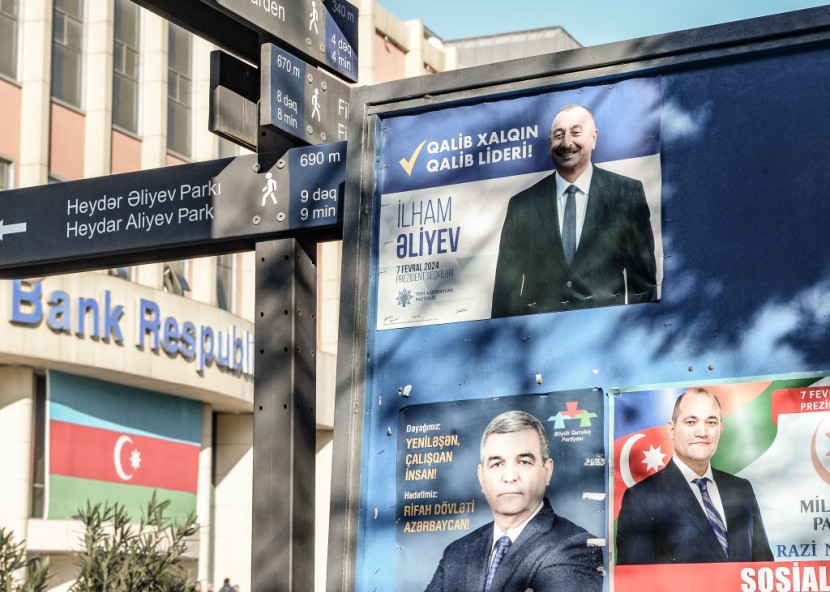On Wednesday incumbent President of Azerbaijan Ilham Aliyev will look to secure another seven-year term in a snap election.

Analysts believe the election was called for so abruptly so the current president can take advantage of the popularity gleaned from the government's recovery of a region once controlled by ethnic Armenian separatists.
How Long Has The President Been In Power?
The 62-year-old president has been in power for more than two decades and succeeded his father, who was the country's Communist leader up until the fall of the Soviet Union. Afterward, he remained in power for another 10 years.
The presidential vote was set to take place in 2025 but Aliyev decided to move the election up after his soldiers recaptured the Karabakh region from ethnic Armenian forces, who controlled the area for 30 years.
Azerbaijan relies heavily on fossil fuels and will host the U.N. climate change conference in November.
Aliyev reportedly stated that his wish is that the election is the beginning of a new era in which the country is whole.
The Nagorno-Karabakh region came under the control of ethnic Armenian fighters, backed by Armenia, following a separatist war in 1994.
Large portions of the region were recaptured by the central government in 2020 during a six-week war. Russia brokered the truce. But Azerbaijan began blockading roads linking the country to Armenia, which caused food and fuel shortages, prior to launching a blitz that routed woefully unprepared separatist forces.
Perhaps fearing reprisal, more than 100,000 ethnic Armenians fled the region after the defeat of separatist forces.
"We showed the whole world the strength, determination and indomitable spirit of the Azerbaijani people," said Aliyev in a victory speech in Fuzuli - a that was once controlled by ethnic Armenian forces.
As Azerbaijani laws are currently constructed, Aliyev as many times as he wishes. Also, there is no real challenge from the six other candidates, some of whom are previously on record as praising him.
His time as leader of Azerbaijan has been marred by laws that grow stricter with each amendment and curb political descent and allow for the arrests of opposition leaders and independent journalists as well.








